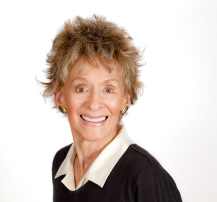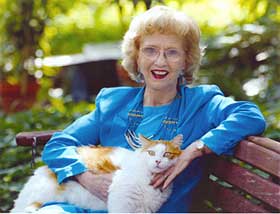
Your chronological age no longer matters . . . not that it ever did

Indeed, you are not as old as you think you are.
Several years ago, I discovered a website where for $2.00 you could purchase excerpts from books. I purchased three excerpts from a book titled Don’t Stop the Career Clock: Rejecting the Myths of Aging for a New Way to Work in the 21st Century by Helen Harkness, Ph.D. I was so impressed with what I read that I immediately ordered the book.
If the excerpts were impressive, the book blew me away. On reading each page, I kept thinking, “She has stolen my stuff. This is exactly the way I think and the way I write.” The reality is, Dr. Harkness and I are simply “on the same page.” She wrote her book several years before I wrote my book, Put Old on Hold Moreover, her thinking about the future and the aging process is light-years ahead of mine.
Helen Harkness is past retirement age but wisely refrains from telling her chronological age. However, I can tell you that after meeting her at her office in Garland, TX, she functions as a dynamic, fifty-year old. She maintains an active professional schedule as president of Career Design Associates, Inc., specializing in individual and organizational renewal through career and management training programs. She has been an English professor, department chair, director of adult education, acting dean of business development, and academic dean and provost at the University of Plano in the 1970s. Her accomplishments are a constant reminder to keep doing what I’m doing.
One thing I’ve learned when meeting older, productive people, such as Dr. Harkness, is that often they are reluctant to

reveal their age. Although I now reveal mine, (when you write a book about how to Put Old on Hold, revealing your age is unavoidable for credibility purposes!) I am convinced it’s not wise to reveal your age for two reasons. First, every time you speak your age, you reinforce the significance that you and society place on chronological age. It forces an awareness that life is winding down. Why be reminded of that? For what good purpose?
Second, and most important, when others know your age, you expose yourself to their biases, perceptions, and expectations about how someone your age should conform to society’s norms. If you appear fiftyish, but you are older and your age is not known, you are not as likely to be subjected to: “Why are you doing that at YOUR AGE” or “Act YOUR AGE!” or “You have to expect aches and pains at YOUR AGE” or “People YOUR AGE should be taking it easy.
Don’t Stop the Career Clock is filled with meticulous documentation that supports the author’s thinking about aging and working. There is something on every page worth highlighting and underlining for future reference. Particularly helpful for those vacillating between passive retirement and continuing to be productive is the chapter “Seven Steps for Resetting Your Career Clock.” In this chapter, Dr. Harkness provides numerous exercises to help you think about what you are good at, and what you might really want to do with the rest of your life. The exercises alone are worth ten times the cost of the book.
What I personally found most helpful is the chapter “Learning a New Way to Tell Time.” In it, Dr. Harkness says, “. . . because of our social and cultural expectations, we program ourselves to begin to fall apart at a certain designated age, and we oblige.” She then gives her “live long, die fast” model for aging, which should give hope to anyone over age 65 who has bought into the myth that “it’s too late for me.” Here is her new model that I have personally adopted. It can change the way you think about the present and look at the future:
Young adulthood: 20-40
First Midlife: 40-60
Second Midlife: 60-80
Young-old: 80-90
Elderly: 90 and above
Old-old: 2-3 years to live
Why does this model make so much sense? Look at the statistics: In the past century, the lifespan has increased by 30 years with no signs of slowing. In 1950, there were about 2,300 centenarians. Today there are over 40,000. By 2050, close to one million people will be 100 years of age or older. Will you be one of them? If so, in what circumstances will you be living? What will be your physical and mental condition? If you are in your forties and fifties you have the power to influence what your future will be like. It’s all about having the right information and making future-oriented lifestyle choices. Don’t Stop the Career Clock will help you make some of the most important choices you will make in your life.
Gerontologists say that 70 percent of the aging process is controllable; only 30 percent of how aging progresses is imprinted in our genetic code. With smart lifestyle choices, even that “untouchable” 30 percent can be managed to avoid many lifestyle-induced diseases. You don’t have to become that debilitated, dependent, castoff from life at 65 and beyond. You have more power over your aging process than you think. Learn how to harness that power and use it for your benefit.
Leave a Reply